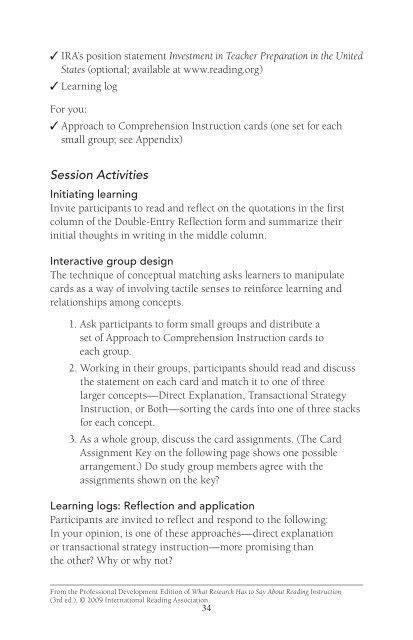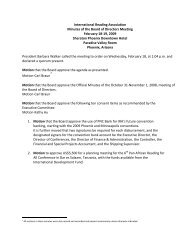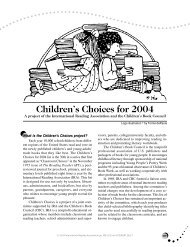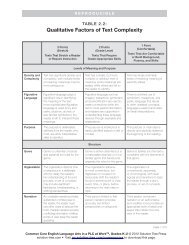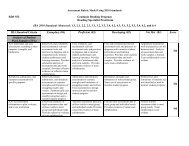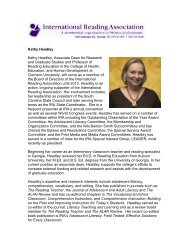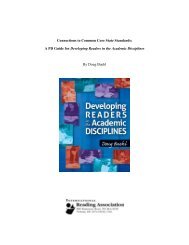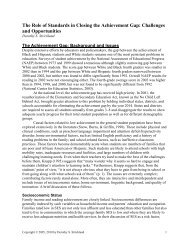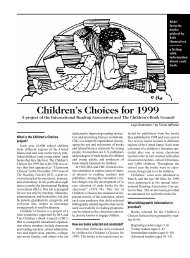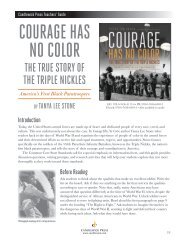What Research Has to Say About Reading Instruction - International ...
What Research Has to Say About Reading Instruction - International ...
What Research Has to Say About Reading Instruction - International ...
Create successful ePaper yourself
Turn your PDF publications into a flip-book with our unique Google optimized e-Paper software.
✓ IRA’s position statement Investment in Teacher Preparation in the United<br />
States (optional; available at www.reading.org)<br />
✓ Learning log<br />
For you:<br />
✓ Approach <strong>to</strong> Comprehension <strong>Instruction</strong> cards (one set for each<br />
small group; see Appendix)<br />
Session Activities<br />
Initiating learning<br />
Invite participants <strong>to</strong> read and reflect on the quotations in the first<br />
column of the Double-Entry Reflection form and summarize their<br />
initial thoughts in writing in the middle column.<br />
Interactive group design<br />
The technique of conceptual matching asks learners <strong>to</strong> manipulate<br />
cards as a way of involving tactile senses <strong>to</strong> reinforce learning and<br />
relationships among concepts.<br />
1. Ask participants <strong>to</strong> form small groups and distribute a<br />
set of Approach <strong>to</strong> Comprehension <strong>Instruction</strong> cards <strong>to</strong><br />
each group.<br />
2. Working in their groups, participants should read and discuss<br />
the statement on each card and match it <strong>to</strong> one of three<br />
larger concepts—Direct Explanation, Transactional Strategy<br />
<strong>Instruction</strong>, or Both—sorting the cards in<strong>to</strong> one of three stacks<br />
for each concept.<br />
3. As a whole group, discuss the card assignments. (The Card<br />
Assignment Key on the following page shows one possible<br />
arrangement.) Do study group members agree with the<br />
assignments shown on the key?<br />
Learning logs: Reflection and application<br />
Participants are invited <strong>to</strong> reflect and respond <strong>to</strong> the following:<br />
In your opinion, is one of these approaches—direct explanation<br />
or transactional strategy instruction—more promising than<br />
the other? Why or why not?<br />
From the Professional Development Edition of <strong>What</strong> <strong>Research</strong> <strong>Has</strong> <strong>to</strong> <strong>Say</strong> <strong>About</strong> <strong>Reading</strong> <strong>Instruction</strong><br />
(3rd ed.), © 2009 <strong>International</strong> <strong>Reading</strong> Association.<br />
34


